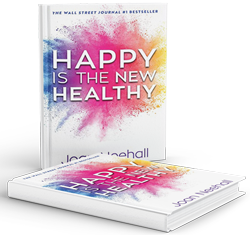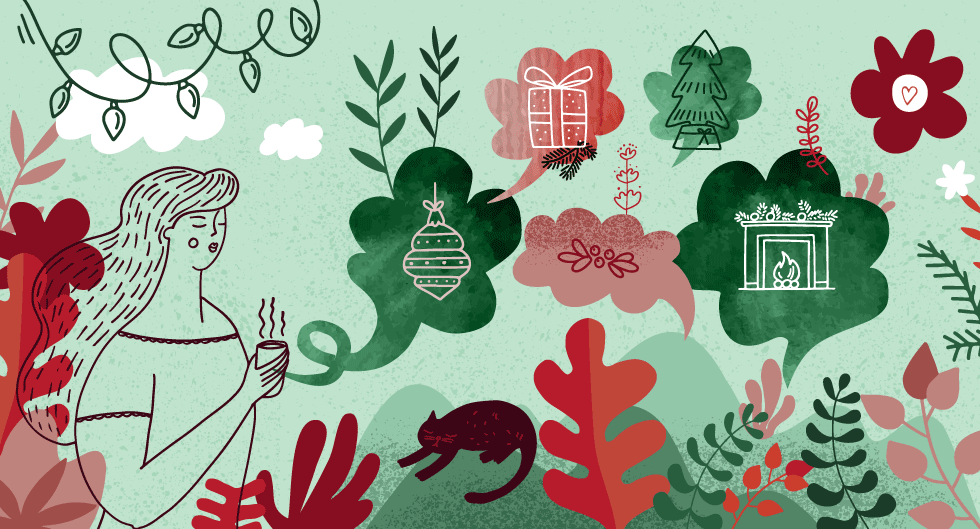Coping and Flourishing over the Holiday Season
The holiday season often brings a mixture of joy, reunion, reflection: and sometimes pressure, exhaustion, or emotional heaviness. This year I invite you to approach the season with compassion for yourself and others, while using psychological tools that can help you not only cope, but also flourish.
1. Practice self compassion.
Research by Kristen Neff PhD shows that self compassion, reduces stress, improves emotional resilience, and supports healthier motivation.
Instead of striving for a perfect holiday, consider:
- This is a moment of stress; many people feel this way.
- What would I say to a friend in this situation?
This simple reframing activates the brain’s caregiving system rather than the threat system.
2. Name your emotions to tame them.
According to affect labeling research by Liberman et al, simply naming what we feel for example overwhelmed, joyful, anxious, grateful, tired, can reduce intensity and help the prefrontal cortex regain balance.
Try a quick check in:
- What am I feeling right now?
- What might this emotion be trying to tell me?
3. Set healthy boundaries.
Holidays highlight loyalty binds. Holidays can amplify expectations. Cognitive behavioral strategies suggest setting limits reduces stress and regret.
Examples:
- Limit events to prevent burnout.
- Budget your time and financial resources.
- Saying I can’t commit to that, but thank you for understanding.
- Setting micro boundaries protect our well-being and preserve connection.
4. Ground yourself in the present.
Mindfulness based approaches, help regulate,stress and enhance enjoyment.
Try this 60 second grounding exercise:
- Notice five things you can see.
- Five things you can touch.
- Three things you can hear.
- Two things you can smell.
- One thing you can taste or imagine tasting.
A brief practice can reset the nervous system.
Flourishing during the holidays.
Flourishing doesn’t mean being constantly happy. It means experiencing well-being across several domains. Marty Seligman’s Perma model (positive emotion, engagement, relationships, meaning, accomplishment) offers a roadmap.
1. Positive emotion: Savour small moments.
Savoring research shows that lingering on positive experiences increases overall well-being.
Here are some ways to savor:
- Capture, small joys: a warm, drink, laughter, a quiet morning.
- Pause and mentally record something you appreciate.
2. Engagement: Do activities that create flow.
Flow theory suggests we flourish when immersed in meaningful challenges.
Holiday flow moments might include:
- Cooking or baking
- Crafting, decorating, or music
- Puzzles or games
- Winter sports or nature walks.
3. Relationships strengthen connections.
Social connection is one of the strongest predictors of well-being.
You can cultivate it by:
- Expressing gratitude to someone in writing.
- Scheduling a short check in with a loved one.
- Asking deeper questions for instance, what made you smile this week?
4. Meaning: Anchor to what matters most.
Meaning can heighten holiday satisfaction, more than pleasure alone. Research suggests that values based action increases long-term well-being.
Consider reflecting on:
- What do I want this season to stand for?
- How can I show up in ways aligned with my values such as kindness, rest, generosity, authenticity?
5. Accomplishment: celebrate what you’ve achieved
Small accomplishments count.
Try a year in review reflection:
- What challenges did I navigate?
- What strengths helped me?
- What am I proud of even if it wasn’t perfect? Research and positive psychology shows that acknowledging progress fuels motivation, and optimism.
More than half of Canadians [52%) in a Canadian mental health survey in 2021 reported significant stress during the holidays. Questions such as who shall we attend the holidays with? Where do we belong? What are our duties? What do I owe to whom? How much can I choose? can all be anxiety producing questions.
We’re lucky if we can do the evening there and the morning in another place. And what happens if I’m going to host and no longer have to run from one place to another? It’s normal to have mixed emotions during the holidays. You can hold joy and stress at the same time. Coping and flourishing are not opposites: they often grow together.
Give yourself permission to rest, reflect, and reconnect with what nourishes you.
Wishing you warmth, peace, and renewal this season.


